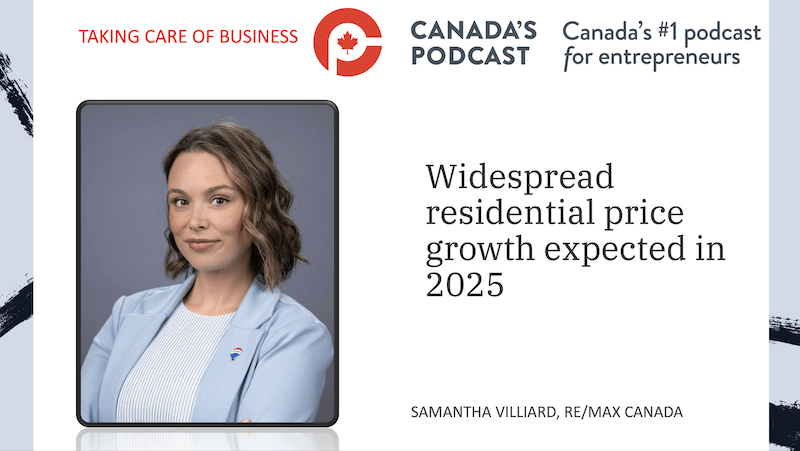Editor’s Note: This is the first in a three-part series examining new research from the Business Development Bank of Canada (BDC) on how COVID-19 is negatively impacting the mental health of entrepreneurs.
Last month, BDC released some alarming, but certainly not surprising findings on the overall mental state of Canadian entrepreneurs many of whom are grappling with a pandemic that has caused untold harm.
A new report from the federal crown corporation which bills itself as Canada’s bank for entrepreneurs, revealed that while 64% of respondents are adjusting, upwards of two in five business owners report feeling depressed at least once a week and two-thirds feel tired or have low energy.
BDC noted in a release that the pandemic is having an “even more alarming impact on certain sub-groups, particularly women entrepreneurs, visible minorities and business owners who have either not yet resumed or only partially resumed activities following the initial COVID-19 lockdown.”
Dr. Joaquin Poundja, a clinical psychologist at the Douglas Institute, contends that entrepreneurs need to “brace themselves for longer-term disruptions” as a result of the pandemic and “prioritize their mental health in order to lead their businesses through this new reality.
“The fact that two-thirds of respondents feel tired, low or have little energy is worrisome and should be addressed,” he said.
“On one hand, it is important to keep in mind that being more anxious at times or having mild ups and downs is a normal reaction during a pandemic, but it can be more problematic when we become self-critical or judgmental. Finding coping strategies and watching for warning signs of a bigger problem are important.”
Poundja listed the following warning signs that could indicate more serious mental health issues:
- Changes in normal behavioural patterns such as eating or sleeping more or less than usual
- Increased alcohol or drug consumption
- Withdrawal from relationships and reduced sociability
- Difficulties in daily functioning at work, at home or in relationships, and,
- Rumination about how things could go wrong that start to affect one’s capacity to work.
“Last year, BDC made a commitment to raise awareness about the mental health and well-being of entrepreneurs, in addition to the health of their business,” said Annie Marsolais, chief marketing officer and mental health advocate at BDC.
“By examining this topic and collaborating with experts and partners we can help break the stigma associated with mental health issues, ensure business owners feel more at ease discussing it, and know where to turn for help.”
In an interview with Canada’s Podcast co-founder Phil Bliss, Marsolais explained the BDC began pursuing the topic two years ago after “hearing stories about entrepreneurs really struggling with mental health – depression and anxiety – to the point entrepreneurs we knew committing suicide.
“Obviously, it was concerning to us and we wanted to find out more about the state of mental health of Canadian entrepreneurs. There was nothing available, so we started off last year with the help of the Canadian Mental Health Association.
“We conducted that first study, but in recent months with the pandemic hitting we wanted to really understand what the impact was and how were they coping with it and how are they facing these challenging times.”
What the report found, said Marsolais, was that business owners whose operations or activities have not fully resumed or not resumed at all, is the group where the severity of the mental health issues interfering with their ability to work is most concerning.
“In the current context, there are a lot of women entrepreneurs whose businesses are in the hardest hit sectors. For example, retail, tourism, wellness. We know gyms are closing in red zones, restaurants are closing.
“The majority of them are in these types of businesses and secondly, they are still highly responsible for the household, plus childcare. There is a lot on their shoulders and that’s why, for example, the findings show that at least half of those surveyed feel depressed at least once a week and that compares to 35% for men.”
A key piece of advice that comes out of the interview is this: Do not be afraid to seek help.
“People don’t like to speak about mental health issues,” said Marsolais, “especially entrepreneurs because of the stigma and concern about what employees will think about expressing ‘I am vulnerable, what will my customers think about me being vulnerable, what will my vendors and suppliers think – will they not want to do business with me again?’
“Entrepreneurs have an innate resilience and that’s probably the first thing you want to tap into. Entrepreneurs are driven, they are resilient and able to bend not break. That’s true, but when all is said, we are all human beings and sometimes it is more difficult to get back up than other times.
“It’s important to ask for help. The good news is that we are in the digital era. You can have remote therapy and it is more convenient and more acceptable than walking into a clinic.”
The BDC has also established a resource page devoted to mental health.
“We are going through unprecedented and unsettling times as the world wrestles with the health and economic impacts of COVID-19. It is more important than ever before to take care of your health and that of your loved ones,” it states on its Web site.
“These resources are intended to offer you a range of services on mental health and well-being. We hope that through them, you will be informed, educated, inspired and guided.”
Part two of this series will appear next Thursday.





